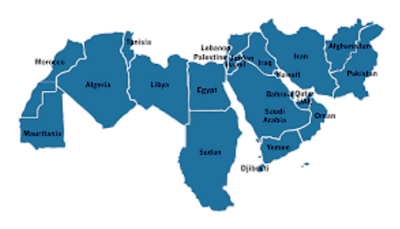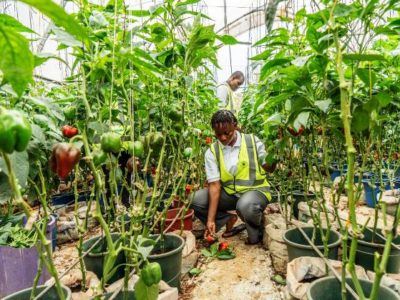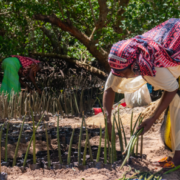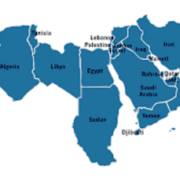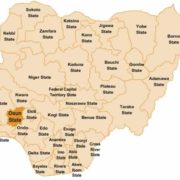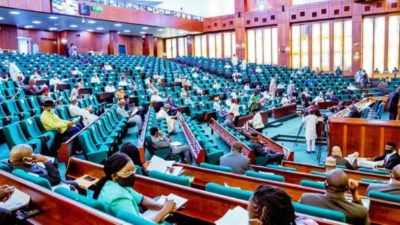In this interaction with Baobab Media team SEGUN ORUAME and JOE ANUGA in Makurdi, Honourable Commissioner for Finance & Economic Planning, Benue State, Oklobia Omadachi, says Nigeria has entered a unique time to leapfrog its economic processes. Omadachi, academic, technocrat and one of the major economic thinkers in Governor Gabriel Suswam administration, says Nigeria still has a lot of contradictions in its past to resolve. But he is optimistic that in resolving those contradictions, Africa’s most populous country of some 160 million people, will ultimately occupy a central role in global economic-political space. At a breakfast parley in his home in Makurdi hours before the labour union marched against the removal of oil subsidy by the Goodluck Jonathan presidency, Omadachi, an economist, asserts that government 2012 budget is a major shift towards putting development expenditures above recurrent expenditures. Nigeria’s growth path is hinged on development and not recurrent expenditures, he argues. If government must inspire real growth, it must cut on recurrent overheads and face the challenges of investing in infrastructures which in turn will spur industrialization.
One article in the New York Times sees Boko Haram as not the problem of Nigeria but the failure of leadership; extreme poverty and a state of hopelessness among a large number of millions of Nigerians. The writer of the article appears to sum up the conclusion of Chinua Achebe in his slim book, The Problem with Nigeria. Being a southerner or a northerner is really not the issue but the absolute degeneration in leadership that has negatively impacted on the people.
You can see that particularly from the point of view of the poverty side. You take a look at the population and you see that quite a lot of people live under two US dollars per day. You also know that this huge population of unemployed people is not particularly educated which heightens the problem. If you look at the structure of the unemployed, it is mainly youth. Nigeria population is predominantly young. There is a lack of survival skill amongst this young population. Our educational system does not teach you survival skills, it teaches you to get employed in the government agencies, and if the government cannot employ you, you cannot get employment outside. And then the economy is not thriving in such a way that the private sector can absorb this teeming number of youths that are unemployed. There was a time when we thought that the banking system would be able to absorb unemployed youths in the country, but with technology being deployed in the financial services sector, it is no longer employing people as it was earlier conceived. A bank that has a network across the country may have 350 or 400 person on its payroll and another 50 or 100 as casual staff and the rest is driven by technology; so the possibility of mass employment in the financial sector does not exist because technology has stepped in not only to bring about efficiency and effectiveness in the operation but also to reduce the number of persons you can employ doing manual operations. However, in my view it allows you to democratize the process in terms of the fact rather than building one single pyramid you build many flat pyramids so, you could have sub-sectors providing services across board, so if you have a restaurant that sells fast food, you would have that across, one that exists on one street and another one on the next street and so and so forth within a particular area and because you have all of that you continue to employ and I think we have not addressed the fact that population is an asset. Population is a huge asset and we need it explore it as a resource. We have a very young population that is growing at a faster pace than the economy is growing.
Some will argue that the economy is shrinking and not growing. And then the question is who do you blame for this? Is 12 year enough for a democratic government to address the economic challenges the country is facing. I mean a democratic government that is still trying to define itself to address the socio-economic problems created by those years of military rule which effectively killed everything that is the economy and undermine the institutions that foster real growth in the country. Incidentally you happen to be a Commissioner of Finance of Benue State in this democratic dispensation now if you look at Nigeria economy as at it were, will you say the civilian regime that took over has done enough or that the economic system has been so traumatized, so bastardized, that it will take more than a decade to address things.
I think to some extent the economy is shrinking. But I don’t think the assertion that enough has not been done is correct. A lot has been done. One of the things that we under estimate in the terms of what has happened in the last 12 years of democracy or what some people will call post military years or era is the fact that we think that because of the level of education in the country or exposure among a large number of people we understand the practice of democracy in its full form. The practice of democracy is not enough; neither is the knowledge of democracy enough. Now understand what democracy is. It is something that you have to be used to doing. It is a culture that must evolve on its own through practice. Remember that in the last 12 years Nigerians have only gone to the polls for general election only thrice. It is not enough to understand democracy for a people that have not been used to it in over 50 years of independence. We are probably at that point of no return where we are at the hours of the morning, everything is dark, the whole place is still dark and you don’t understand what is going on and morning is about to break.
I think that is where we are right now and the moment we are able to cross that part to the other side a lot more would be happening in the country. I think Nigerians are obviously concerned about this state and anxious to cross it. And it is not just Nigerians that are eager but also people that live around us, the larger African continent, in the sense, that if we get it wrong, a lot more African countries will get it terribly bad.
To the substance of the question as to whether we have not learnt anything, I think we have. Credit should be given to the leadership for having made a lot of efforts. Remember that we are coming from a historical period that is not known to allow for dissenting voices amongst established voices and now you have dissenting voices or opposition voices competing with mainstream voices, and that in itself is what we are getting used to and having to manage. I agree with you that there is some shrinking but I like to liken it to a dampening period not shrinking because if you take one clear indicator, the media, the vibrancy of the media is not as it used to be and one other thing that is happening is that you find a situation where the mainstream media houses and dying and few new ones coming up. The economy is not where we expect it to be certainly. We think we can do more than is currently being done. The challenges exist for us to be able to resolve.
As a country, I think we are often torn between optimism and pessimism. You have this view of an optimist that Nigerians stand a chance to survive and then you have to contend with a heightened sense of insecurity; an economy that does not give about 80 percent of the people any sense of hope, then there is a thinking generally that this country will cease to exist in the foreseeable future as close as 2015. In between all these, some people say crash this democracy if you want to have hope. When you put all these together, what will be your own perception of things?
I don’t think that the argument should be to crash this democracy to have renewed hope or to face the current cocktail of insecurity, democracy, economy and so on. I don’t think crashing our democracy as it is now is the solution. If you wrote the West African Examinations and failed and wrote JAMB and failed and could not get into the university, I don’t think that the solution would be to forget it, because if you do then you would never be able to get into the university because you need those exams to get into the university. What you do is to go back again and re-evaluate the situation and write those exams and then pass them to get into the university. You don’t have to crash it and say I’m not going in there. Because I failed once or twice, I shouldn’t conclude that I can never have the right combination to get into the university to study medicine or law or to read economics or pharmacy or engineering.
The contention is that this democracy is expensive, is a burden on the people, and it can’t build this economy.
What I always say when I hear this is, if you take the ten most populated countries in the world, countries that have population well over 100 million and above. Nigeria is one of them and Nigeria is the only African country amongst them. None of these African countries have a population as huge and diverse as Nigeria which tends to weaken the argument that democracy or the structure of government is expensive and not sustainable. I do not think that it is the cost of democracy that is the problem – that is the least of the problem. You cannot say the cost of representing a people as diverse as Nigeria and with such a huge population is expensive. You can’t reduce the cost of democracy; there are many ways in which you can reduce the cost of governance. For example, we have been increasing salaries over time; that of course will increase the cost of democracy. We have continually not allowed innovation to come into government which will reduce the cost of governance. We allow the penchant for representation in terms of our differences to permeate governance such that you find out that you have to have a minister from every state and no state wants to have anything like what we call junior minister of state, and every state wants to have an ambassador, every state wants to have board chairmen and so to satisfy that we create the offices to fit them in. All these lead to the high cost of democracy. We have to seek ways on cutting down the cost of governance. Is it possible that we can say look since I have people from my state in this position I don’t need a minister or I have a minister, so I don’t need people from my state in that board position. We have to find creative ways, and there are, to reduce the cost of democracy. I do not think that the cost of democracy is the problem, I think the problem is that we have made democracy expensive.
“I think that the federal system is still strong, we still need to whittle down more of the federal powers, more of physical responsibilities particularly, I think we need to look at some federal agencies, federal ministries and see whether they are relevant, some of them are no longer relevant.”
In our own context, we have made government both expensive and a burden. It is not really about democracy.
The part I also argue is that wait a minute, why should democracy be cheap anyway? Why shouldn’t we enjoy the good life of democracy, the glamour of democracy? I mean America is where everybody wants to go. America has the most thriving democracy in the world and it is not cheap. The good life in America is not cheap. It came at a cost. The other angle to look at it is that, if you check the issue of the structure and you say it is expensive and not working; then, let us go back to the pre-presidential systems and look at the parliamentary system. It will begin to get expensive, and we are going to complain and say this is expensive, why did we come here and so on and so forth. My view is that there is nothing wrong with the presidential system of government. I think it suits our society, particularly if you look at the size of the country, and you look at the population and the diversity, the presidential system best captures it all. It allows us to be free, to express ourselves on diverse cultural points of view. The system allows us to express our differences that are not actually antithetical to democracy and will not create a convulsion. It does not tighten the freedom of expression either culturally or otherwise. There is no country in the world that has huge population, a huge geographical space that is not federal or that does not have a system, which allows for all of the divers composition to be represented. There is just no way the cost of governance can be cheap compared to smaller or less diverse countries.
Could it be that the way we see governance, the aim for which we put government, or the aim which government exists could that be part of our problem. What I mean is that politicians should produce a compromise that will allow the system to work to make life better; or we could even say that the problem exists because the level of competence that some of our technocrats have in their field far out strips the ability of our politicians to produce a compromise that we can agreed with.
To some large extent, you are correct because the system in itself should allow for compromise and for the system to do so you have to bring that to bear, and the only person that can do that to bear is the politician. In other words, there are no hard and fast rules, governance is not an end in itself but a means, a means to achieving democracy rather than an end. Democracy is not finite, you have to work toward democracy and you have to work at it continuously. There is never an end to it. If you resolve ethnic issues what about gender, you could resolve gender issue and then some persons begin to talk about gay rights, you could resolve that and some persons would begin to talk about right on the point of view of ailments, so it is never conclusive, you can never say that you’ve reached the end of democracy and therefore you cannot sit back and expect it will work automatically. There are always issues as you resolve one and again that is what makes life interesting. But I agree with you that you have to bring to bear compromise in the system in the process of governance such that, it is in the course of doing that, that the best will come out.
We have technocrats who are really experts in their field. Take this piece of information about Nigerians in Britain, when they were trying to put the number of achievers in diverse fields from Africa and Nigerians were at the top. But, we come back home and this same Nigerians who are doing very well in their specific field come back home here and can’t live together. I am looking at the inability of politicians to create the environment for security. Doesn’t that suggest a kind of failure for this current dispensation or is that just a challenge?
I think it is a challenge and not a failure. Because we have not done it does not mean we have no processes in the works to achieve that or to bring in Nigerians who are doing very well in the diaspora. If you will recall, there has been efforts in previous years to do that and even currently there’s an engagement between government and Nigerians who have organized themselves and will like to come home to support both in the area of medical and educational concerns, the area of building refineries and in the area of power sector – a lot of Nigerians in the diaspora have come in that regard. I am also aware of exchange programmes with our educational institutions in the country. Let us understand something clearly. because you are successful outside in an organized western country in Europe or America, you cannot come back to Nigeria and expect exactly the same thing because we are not on the same threshold or the same level with those countries. Nigerians with expertise that are living abroad can come back, knowing fully well that they are coming back to help, to support, to acknowledge value, but not on conditions that look if you don’t give me this, I wouldn’t come to do that and by doing, you are only complicating the already existing challenges on the ground.

When we loot at the Nigerian system, we talk about a very strong centre in our federal structure which has not always been regarded as the ideal. You have an extremely strong centre, and then you have very weak states and equally very weak local government councils. There has always been this argument that you need to reduce the centre and increase the power of the states; you also need to reduce the attraction of power at the centre because government is about people at the grassroots.
This is the way I look at it, having look at the historical antecedent why the centre is so powerful, and the rest of the country so weak? There is historical reason why that is so. And the major historical reason is if you take British colonial administration and military rule they are all rules that emanated from the centre to the periphery, it is a command structure, and that is what we have for many years despite the fact that under colonial rulership and as we moved towards independence, Nigeria was getting more federal and indeed, if you look at the entire history of Nigeria, under the colonial rule we were not particularly unitary state, however we were governed as unitary state because of the command structure of the system. The military also applies the same rule but the paradox is that as command structure as the military was it also bequeathed federalism all through and indeed, created the 12 states structure to allow for further devolution of power. Although there are political reasons as it were but significantly is the fact, that states creation allowed for further devolution. It created more centres of power outside Lagos. It created 12 more centres of power and then in 1975 with the Dasuki Report we had this new system were we have a three tier government and again under the military, the Murtala/Obasanjo administration that appointed the Dasuki committee. All through you find out that even as we were run as a unitary state with command structure, the military craved and continued to expand the prospect of federalism in Nigeria. But, I think being caught in between that process, created a psyche in us where we are neither federal nor unitary. We like the federal structure and we like what came with federalism but we adored the big man at the centre. We adored authority coming from the top down; I think that is where the conflict currently is. I think that the federal system is still strong, we still need to whittle down more of the federal powers, more of physical responsibilities particularly, I think we need to look at some federal agencies, federal ministries and see whether they are relevant, some of them are no longer relevant. Defence is still relevant and at the federal level. Security is still relevant at the federal level and shouldn’t be compromised. We need to whittle down and devolve more physical powers or responsibility to the states but more importantly, to the local governments. We must have local governments that have the capacity to engage competences that are relevant in our rural areas and provide dividends of democracy. I will like to see a situation where a local government can operate a hundred beds general hospitals with consultants in different sectors of medicine, providing medical attention to people in the rural areas where people don’t have to leave the rural areas to get medical attention. At the moment, we run local government like the appendages, not as independent tiers of government. But we need to do that, as more powers are devolved to the states. States can do more in agriculture; it means we will have more employment. If the local government can do more in service provision, it means we will have more employment in the rural areas than we currently have. My argument is that we need to whittle down the federal government without compromising what creates the national sense of our country; without compromising the basis of our unity and the national growth; without compromising standards and the fact that all states are equal and to that extent and I think that we should work more on physical devolution.
Let us look more closely at the resource base from which we operate; it is still largely an oil based economy and somehow in the last 12 years we have still not been able to go beyond a mono-product. We have not been able to take advantage of our population and its diversity. From your experience, what are government agencies doing to put us in that direction?
If you take the garment industry, it has basically collapsed in terms of cotton production in the north and so on, but have you also noticed that the fashion industry has picked up and has become a big boom and is a lot of money? Take Nollywood and what has happened in that sector and the amount of money that they make in there so can you imagine the fact if we no longer technically depend on equipment coming in from outside and some equipment which can be assembled here or fabricated here and how much of that would impact the economy. I think that if we take advantage of the population and we take advantage of devolution of responsibilities it would create a wider economy and so absorb the unemployed; people would become more creative in what they are doing and begin to look at other things and then you will find that in terms of the mono-economy petroleum being the dominant factor is no longer there and agriculture begins to play a critical part and so too in commerce, and other service areas. You can imagine the impact the current cashless policy of the Central Bank of Nigeria will achieve in Lagos and Port Harcourt in terms of software designers and so on. It is in such policies that you find the resolution of some of these challenges and you can see clearly that the government is working in that direction. Consider some of the policies the Central Bank is issuing in terms of monetary policy management and what the government is doing in its transformation agenda and trying to diversify the economy including the issue of deregulation you know I think that there is a whole lot that is ongoing that government is looking at and is proposing and that’s why if you look at the 2012 budget of the federal government there is a deliberate policy to begin to reduce recurrent expenditure while growing capital expenditure because that’s the way to go. We cannot grow on huge capital expenditure budget we can only grow when we grow our development expenditure. We need to focus more on R & D in our universities; we need to have centres where people are fabricating things like when you go to Jenta Adamu in Jos a while back. A lot of those smart people are no longer engaged as it were, the entire place is just becoming a desert including the factories in Kano, Lagos and elsewhere. Again, government is also conscious of the need to address the problem in the power sector. That is why there is a lot of effort and expenditure going into power. There is a belief that that this will trigger a lot of activities in the industrial side. And some of the factories that are leaving the country will begin to come back because power is one of their major reasons for leaving. It is not the manpower or the capacity that is really a constraint but just some basic infrastructures that are not in place. Earlier on I talked about roads, if we go around the country, you find out that more states are building roads all over and you find averagely in four years most states governments are building well over 300 to 400 kilometres of road, this is important. Perhaps, if states have more money, they will double their efforts. Federal government can also concentrate on the area of rail; modernizing our rail system and ensuring that all states are connected by rail. I think that these infrastructures will certainly throw up a lot of employments.
Let’s look at the home front. In the last four years the Governor Suswam’s administration has been in power, h ow would you rate this government that you have been a part of in terms of infrastructural developments including roads, the health sector, education and the agriculture sector?
Without a doubt, you have to rate the administration of Suswam high in the area of agriculture and education. We’ve embarked on a massive renovation and rehabilitation of the College of Education, Yandev and in fact government is working on upgrading the college to a higher status to become a polytechnic. Government has also continued to support our population in the agricultural sector. The main preoccupation of the population is in agriculture and the state is known as the country’s food basket. Government has heavily subsidized fertilizer purchase and tractors; and we have also have a lot of interest coming in from outside the country in our agriculture sector including areas such as the production of citrus. Right now, we have people from Vietnam interested in rice production and we also have Chinese showing interest in cassava production particular for starch. For all of these, we are in the process of signing MoUs and getting them in to operate. We have almost finished revival of the cattle ranch and we are trying to revive the Agricultural Development Corporation in collaboration with an American that is interested and had taken a look at the place. Quite a lot has happened in the area of agriculture that we think in the next one year or so we should be comfortable to say that we are turning things around completely in the area of agriculture and the administration is doing everything possible to ensure that happens. We recently got the facility from the Central Bank, a billion naira for agricultural credit, and I can tell you that there is a huge demand to participate by the people of Benue State.
In the area of education, I think Benue State is the only state in northern Nigeria that has three universities, Benue State University, University of Agriculture, and University of Mkar and I am aware that one or two are also in the works by private individual groups so education is important here. Since the inception, the government is working on renovating all schools, secondary and the university. We’ve improved our accreditation level in Benue State University, the Collages of Education in Oju and Kastina -Ala and the Polytechnic in Ugbokolo. More courses have been accredited than ever before and we are continuing that process to ensure that all courses are accredited such that our people have the opportunity to study. The governor is also ensuring that we take advantage of the UBE (Universal Basic Education) funds and have approved counterpart fund and so government has a little over four billion naira to expend on that. There is a lot of effort going on in the education sector. As for the roads, in terms of the infrastructure, that is where we have done a lot, combined all the roads we have done is well over 300 kilometers, all the road combined, rural, urban roads and all the interventions you have in urban centers by the ministry of water resources and environment, a lot has happened in that sector. Also we will continue to do that in 2012. If you listened to the governor’s speech, in 2012 he promised to do additional rural roads and indeed urban roads in the state. He also plans to continue to improve on urbanization issues such as sanitation particularly in the major urban centers of the state. In the health sector, works has continued on the teaching hospital as directed by the governor. He wants everything done by the end of January. The governor is committed to completing that teaching hospital and making it very functional and sustainable. The government is also working in the area of renovation of hospitals, provision of equipment in the state and the general hospitals in Aboko, Vandekya, Otukpo, and Katsina-Ala, all of which have been given facelift. We had challenges in the areas of doctors but we are doing what we can to attract more doctors to the state, and we resolved the industrial issue that exists between government and the medical workers. We’ve increased salaries and the issue has been resolved. Medical workers are back to work. There is something going on in almost all the sectors even though funding is always a challenge.


